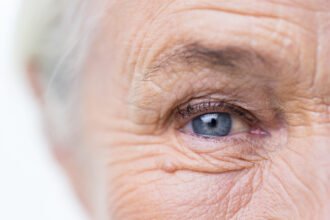 When it comes to providing services in the community, hazardous conditions in the home are an issue field workers face daily.
When it comes to providing services in the community, hazardous conditions in the home are an issue field workers face daily.
 When it comes to providing services in the community, hazardous conditions in the home are an issue field workers face daily. Environmental factors, such as hoarding or family conflict, can not only complicate the delivery of health services, but also can jeopardize a senior’s physical and mental wellbeing. Among these environmental problems are pests, which is especially troublesome for older city dwellers living in highly urban areas such as New York City.
When it comes to providing services in the community, hazardous conditions in the home are an issue field workers face daily. Environmental factors, such as hoarding or family conflict, can not only complicate the delivery of health services, but also can jeopardize a senior’s physical and mental wellbeing. Among these environmental problems are pests, which is especially troublesome for older city dwellers living in highly urban areas such as New York City.
In particular, bed bugs are on the rise again in cities across the country. In recent study conducted by pest control company, Orkin, Chicago tops the list of cities facing a bed bug epidemic, followed by Detroit, Los Angeles, Denver and Cincinnati.
Home care workers who visit patients’ homes on a routine basis are at increased risk for transporting bed bugs. With proper training and constant vigilance, health care personnel can lessen the spread of bed bugs in the community, while still continuing to serve patients.
What are bed bugs?
The first step in bed bug prevention involves knowing what the insect looks like and how to identify it.
Adult bed bugs have flat, reddish-brown bodies, and are approximately one-quarter inch long – about the size of an apple seed. They are wingless creatures, meaning they do not fly or jump; rather bed bugs spread by crawling. The old saying, “Don’t let the bed bugs bite” derives from the fact that bed bugs are primarily active at night. During the day, they hide in beds, mattresses, and other tiny cracks and crevices.
Why are bed bugs dangerous to seniors?
Bed bug bites may appear as itchy red spots or welts, similar to a mosquito or flea bite. While bed bug bites are not known to spread any diseases to humans, they can still create medical problems for seniors living at home.
Older adults with compromised immune function, whether the result of age or a chronic condition, may be at risk for blood infection. Excess scratching can produce skin infections and ulcers. For persons with poor eyesight or impaired cognition, spotting the bugs is harder which leads the problem to fester and multiply if no one intervenes. Bed bugs can also lead infected seniors to isolate from the community, family, and friends.
Bed bug prevention tips for home care workers
There are simple precautions in-home care providers can take to minimize their exposure to bed bugs and lessen their risk of spreading the pest to others.
- Ask if there have been any insect infestations in the last 2-3 months. Don’t be shy! This is about everyone’s health and safety.
- If you suspect there is an infestation, perform a thorough inspection. In addition to examining all linens, check wall edges, under appliances, in books and magazines, behind hanging picture frame, and in window areas.
- Cover your shoes with a disposable slip on booties and remove. Dispose of the covers as soon as you leave the home.
- Avoid wearing clothes with large pockets and do not wear accessories such as scarves
- Do not sit on upholstered furniture or on the bed. Inspect the cracks of hard chairs before sitting down. If possible, bring a hard surface chair or plastic stool.
- Carry re-sealable plastic bags to hold personal items.
- When leaving the patient’s home, inspect yourself for any bed bugs or eggs.
Have you ever encountered bed bugs on a home visit? What did you do?







